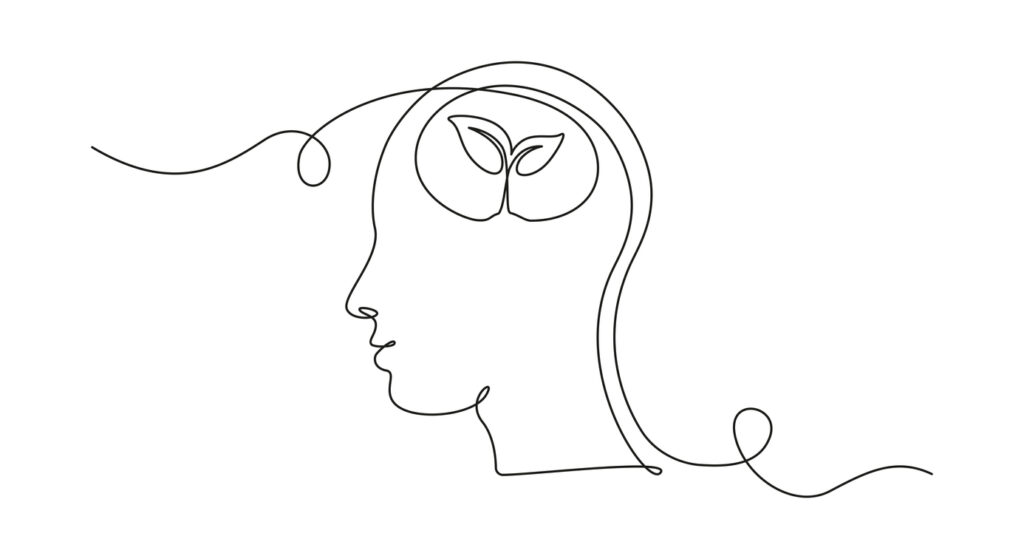Introduction
Welcome! As a clinical hypnotherapist who has worked with hundreds of clients and spoken with thousands of audience members through speaking engagements, I’ve encountered a range of questions and concerns. Many individuals seek hypnotherapy to help with prevalent issues like anxiety, depression, and addiction, but often, there’s a degree of uncertainty or confusion about what the process involves. People often ask, “What is hypnotherapy? And how does it work?” It’s not uncommon for practitioners to hold their cards close to their chest, but I believe in the power of knowledge and transparency.
I want you to understand that hypnotherapy isn’t some mystical art shrouded in secrecy. It’s a tool rooted in neuroscience and positive psychology, used to harness the incredible potential of your subconscious mind. I firmly believe that comprehension of the inner workings of hypnotherapy isn’t just captivating—it’s crucial. It promotes active involvement, nurtures success, and clears away any fog of mystery.
Today, I’m pulling back the curtain to shed light on some of the fascinating aspects of your brain and hypnotherapy. From debunking common misconceptions to getting into the brain’s role during hypnotherapy, we’ll explore key aspects that can enrich your understanding and empower your journey.

1) Debunking Misconceptions about Hypnotherapy
Hypnotherapy is often misunderstood, with a few misconceptions painting an incomplete picture of its true nature. Some imagine it as a scene out of a Looney Tunes cartoon, with a hypnotist swinging a pendulum back and forth, creating an almost magical effect. Let’s clear the air.
Firstly, hypnotherapy is not a spectacle out of a cartoon or a fantasy novel. It’s not about entrancing someone into a zombie-like state or making them cluck like a chicken. You’re not unconscious, and you most certainly are not tricked into something you wouldn’t want.
So, what is hypnotherapy, then? Essentially, hypnotherapy is a cooperative process—it’s a partnership between you and your therapist. It’s about leveraging the untapped potential of your subconscious mind to stimulate positive change and transformation. During hypnotherapy, you’re guided into a state of deep relaxation, enhancing your mind’s receptivity to positive, fresh perspectives.
This state, often likened to a trance, is a naturally occurring phenomenon. Consider those moments when you’re so engrossed in a book or movie that you lose track of time. You’re fully aware, but your mind is intensely focused, creating a conducive environment for gentle guidance towards beneficial behavioral and emotional changes.
Therefore, hypnotherapy isn’t about surrendering your autonomy—it’s about claiming it. It’s about utilizing the immense power of your own mind to mold your reality and enhance your wellbeing.
2) The Power of the Subconscious Mind
The subconscious mind is a powerhouse that tirelessly works behind the scenes, much like the diligent crew on a ship, always executing the orders of their captain. However, the maturity level of our subconscious mind is not as sophisticated as the conscious mind. It doesn’t question the commands given, but rather obeys them without critique or analysis.
If you, as the captain, repeatedly command that you’re a failure, your subconscious crew will take this order at face value. It will guide your actions and behaviors to align with this belief, “Aye-aye, Captain! Let’s fail!” On the flip side, if you consistently declare positivity, success, and resilience, your subconscious crew will work diligently to make those a reality, “Aye-aye, Captain! This is about to go great, just watch!”
Hypnotherapy serves as a powerful tool in this scenario. It allows you to bypass the everyday chatter of the conscious mind to reach the crew directly. In the relaxed state brought on by hypnotherapy, your subconscious becomes more receptive to new commands and beliefs.
Through this process, you can redefine the orders to your crew. You can replace self-defeating beliefs with empowering affirmations, which your subconscious will work to manifest into reality. Remember, your subconscious crew is always listening, ready to follow your orders. As the captain of your ship, you have the power to direct its course.
Hypnotherapy provides you with the tools and guidance to ensure this course leads to success, well-being, and the achievement of your personal goals. It helps you effectively communicate with your subconscious, changing the direction of your ship towards a brighter horizon.
3) The Brain and Hypnotherapy: A Neurological Dance
The effectiveness of hypnotherapy extends beyond psychology and delves into the realm of neuroscience. It’s a beautiful dance of various regions of your brain, each playing a unique role in the hypnotherapy process.
The prefrontal cortex, responsible for executive functions like decision-making and self-regulation, plays a central role. During hypnotherapy, as you enter a state of deep relaxation, this area becomes more receptive to change, helping you adopt new, healthier patterns of thought and behavior.
Another pivotal player is the amygdala, the emotion and fear center of your brain. Hypnotherapy helps soothe an overactive amygdala, reducing anxiety and stress, and facilitating emotional healing.
The hippocampus, crucial for memory storage and retrieval, also comes into play. Hypnotherapy can help you reframe past experiences stored here, shifting the way you perceive and react to them.
Lastly, the insula, involved in empathy and the perception of bodily sensations, plays a crucial role. Hypnotherapy can enhance the connection between mind and body, improving psychosomatic conditions like chronic pain and digestive disorders.
This list, while far from exhaustive, offers a glimpse into the neurological underpinnings of hypnotherapy. The breadth and depth of hypnotherapy’s impact on the brain is vast, with new insights continually emerging as research advances. But what remains constant is the profound change it can initiate, both psychologically and physically, leading you towards a path of well-being and self-empowerment.
4) Neuroplasticity and the Transformative Power of Hypnotherapy
Neuroplasticity is the brain’s remarkable ability to reorganize itself by forming new neural connections, adapting throughout an individual’s life. This adaptability fuels the transformative power of hypnotherapy, underpinning the profound changes that can occur in behavior, thought patterns, and overall well-being.
Let’s look at a couple of examples to illustrate this.
Imagine a woman who had been a chain smoker for 30 years. The act of smoking had created and strengthened neural pathways in her brain, associating pleasure and stress-relief with lighting up a cigarette. When she tried to quit, her brain’s wired response was to crave nicotine even more, making the process extremely difficult. Hypnotherapy came into play here by helping her subconscious mind dissociate the feelings of relaxation and pleasure from smoking. It introduced and reinforced new neural pathways that associated deep relaxation and stress relief with healthier behaviors, like deep breathing or going for a walk. Over time, these new connections became stronger, her cravings reduced, and she managed to quit smoking entirely.
Next, consider the story of a man who suffered from crippling anxiety. His brain had formed strong neural pathways that responded to certain triggers with an intense anxiety reaction, leading to an overactivation of his amygdala, the brain’s fear center. Traditional therapy had limited effect because it primarily engaged his conscious mind. When he turned to hypnotherapy, it worked directly with his subconscious, gradually rewiring his brain’s response to these triggers. Instead of the immediate anxiety response, new neural pathways were formed, connecting triggers to more rational and calmer responses in the prefrontal cortex, the area responsible for rational thinking and decision making. Over time, these new pathways became more dominant, leading to a significant reduction in his anxiety levels.
These examples illustrate the potential for neuroplasticity and hypnotherapy to change the very wiring of our brains, to forge new, healthier neural pathways and allow for profound, life-changing transformations. But it’s important to remember that these stories represent just a fraction of the potential neuroplasticity and hypnotherapy hold – the possible applications are as diverse as the individuals seeking change.
5) Yes, it’s worth giving Hypnotherapy a Shot
As we navigate life, many of us carry the burdens of anxiety, depression, addictions, fears, phobias, or self-limiting beliefs. Often, these struggles stem from ingrained patterns and behaviors deeply etched within our subconscious minds, making them challenging to overcome.
What if there was a way to step out of these shadows that hold you back? What would your life look like if you weren’t afraid? If you weren’t battling anxiety or if you were free from that addiction? Imagine waking up feeling empowered, unburdened, and excited about life’s possibilities. This is the transformative potential that hypnotherapy holds.
Hypnotherapy is an incredibly versatile tool, and its applications are as diverse as the individuals who seek it. Whether it’s breaking free from harmful habits, managing stress and anxiety, overcoming fears and phobias, boosting self-confidence, or improving overall wellbeing, hypnotherapy can catalyze profound shifts in your life.
Perhaps you’ve tried various other methods to overcome your struggles, or maybe hypnotherapy has never crossed your radar until now. Regardless, I urge you to consider this: you deserve to live a life unencumbered by the struggles that hold you back. You have within you an incredible potential for transformation – and hypnotherapy can help you unlock it.
So, why not take a step towards your dreams? Why not explore the potential within you to create the life you desire? In the realm of your subconscious mind, you hold the power to break free from the chains of the past and step into a future filled with growth, joy, and fulfillment. Give hypnotherapy a shot – your future self will thank you for it.
Conclusion
I hope you leave this exploration with a greater understanding of your incredible brain and how hypnotherapy works with it. I encourage you to share these insights—after all, knowledge is power. And should you decide to embark on a hypnotherapy journey, remember: it’s not just a step towards positive change, but an exploration into the depths of your own mind.
